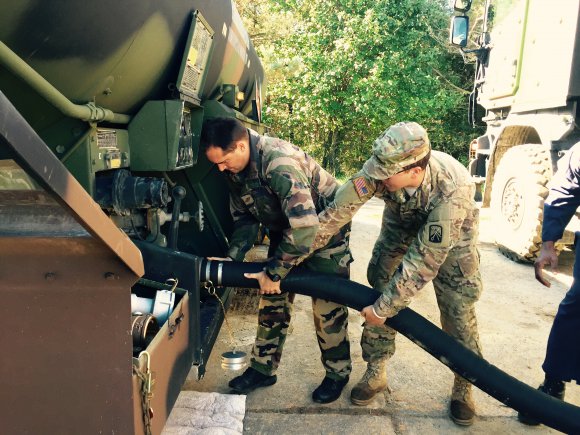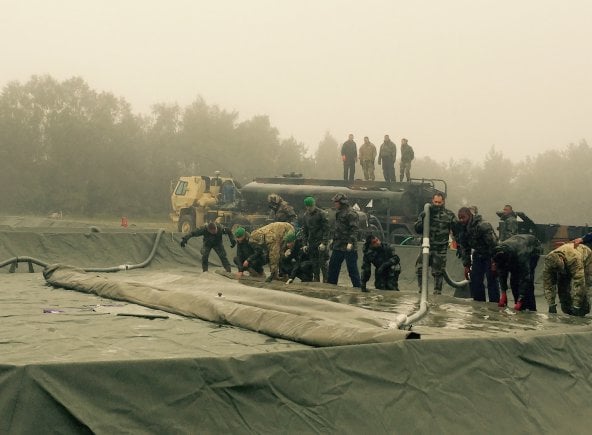NATO’s Strength: A Burden-sharing Success Story
Posted on

At a time of transatlantic fingerpointing and GDP defense spending percentage comparisons, it is soothing to focus on some of the bricks that have cemented NATO allies over the last 70 years.
One key alliance success – if not THE success – has been the development of interoperability among some 30 29 countries (Macedonia is almost a member…). There is one area where interoperability has thrived from the outset, fuel. The reason is rooted in the nature of the required standardizations and certifications stemming from both international civilian and military bodies.
It turns out that, even though every military in the world needs refueling for air, ground and sea assets, very few among NATO allies have developed a fully autonomous capability ranging from the ability to project sufficient equipment to manage the resource – i.e. fuel and petroleum products – on a potentially disrupted theater.
The development of a new concept called Modular Combined Petroleum Unit (MCPU), allows more and more countries to be involved no matter what their capabilities are.
“What matters at the end is that each nation can contribute accordingly to its means, while at the end benefiting from a genuine pooling and sharing venture. The petroleum field allows the smallest player to participate, which gives valor to the idea that everyone must support the collective cost and effort,” says French Col. Naegellen-Roy, who developed the MCPU concept a few years ago while working on smart defense initiative at the Norfolk-based Allied Command Transformation (ACT).
 First tested in 2015 during a NATO Trident Juncture exercise in Spain, this high readiness unit operates under the command of the alliance’s Joint Logistics Support Group (JLSG) and includes eight permanent members: the United States, the United Kingdom, France, Germany, Belgium, Lithuania, Spain and Italy. After months of planning and training, it was fully and successfully deployed during the 2018 Trident Juncture exercise with Hungary as a new participant and Norway as the host nation. France in this case was the lead nation, but during next spring’s Capable Logistician 2019 the MCPU will be co-led by France and Germany, marking an important move in European cooperation.
First tested in 2015 during a NATO Trident Juncture exercise in Spain, this high readiness unit operates under the command of the alliance’s Joint Logistics Support Group (JLSG) and includes eight permanent members: the United States, the United Kingdom, France, Germany, Belgium, Lithuania, Spain and Italy. After months of planning and training, it was fully and successfully deployed during the 2018 Trident Juncture exercise with Hungary as a new participant and Norway as the host nation. France in this case was the lead nation, but during next spring’s Capable Logistician 2019 the MCPU will be co-led by France and Germany, marking an important move in European cooperation.
Key to MCPU are NATO adaptor kits for the petroleum equipment. This bridges one of the persistent and, to some baffling, persistence of an inability for American and Europeans to work together at this Operaitonal level. (Editor’s note: I still remember a senior German commander who’d left the Kosovo theater getting frustrated during a discussion of NATO cooperation. In a discussion with me, he burst out, saying we couldn’t even refuel each other’s *** tanks and trucks.)
Beyond cost-effectiveness, the other advantage of such a common concept is its flexibility which allows the MCPU to be used in NATO settings, but also in any other type of coalition, whether ad hoc or EU, or even bilaterally. In spite of Brexit, France and the United Kingdom are for instance keeping close fuel support ties as part of the Combined Joint Expeditionary Force and are even going the extra mile by exchanging, for the first time, specialized officers in that area.
A very concrete and down to earth area of cooperation which thankfully seems to survive the current political hurdles…
Subscribe to our newsletter
Promotions, new products and sales. Directly to your inbox.
